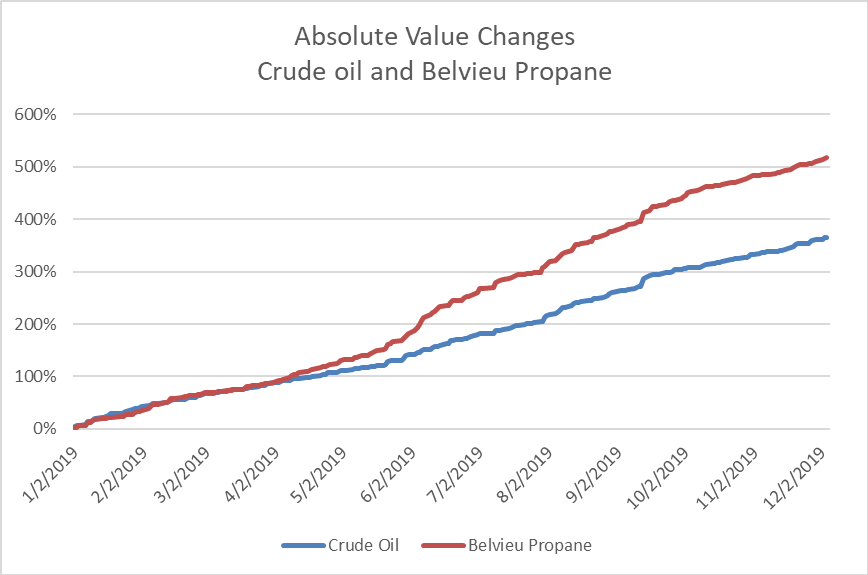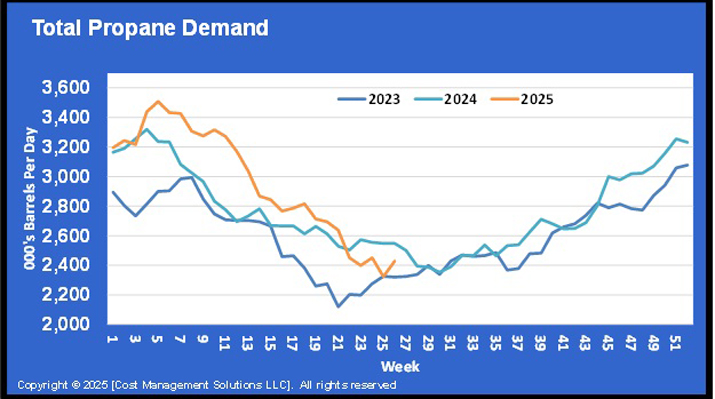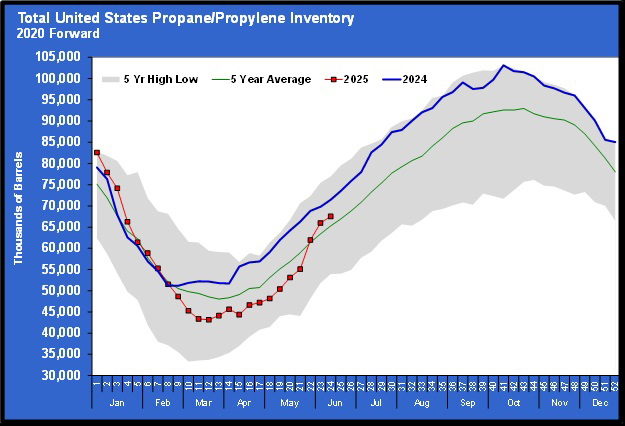Hedging within the current propane market
Who are you?
Most readers of this report know Cost Management Solutions is a company that provides support to retailers that want to hedge. Hedging is often misunderstood as to what it is supposed to accomplish.
Many would-be hedgers are not hedgers at all. One industry veteran told me these folks are “hedgulators” – a cross between a hedger and a speculator. Usually, the clear-cut sign of a hedgulator is worry over a market transaction losing money. The quasi-hedger may be a better term, since quasi means seemingly; apparently but not really.
Proper or true hedging is a buy that guarantees cost of supply against a known sales price, or at least a high confidence in a sales price. True hedgers should never worry about the hedge transaction losing money, since the hedge was never set to make money outside of the profit generated from the sales price, less the guaranteed cost of supply (hedges provide guaranteed cost of supply). Once you leave the hedging concept, you must adapt trading disciplines, and those include identifying loss and profit limits among other strategies.
The structure of the propane market not conducive to trading
The structure of the propane market makes it a poor choice for retailers who want to be traders. Here are some issues who face propane traders. The first is a wide bid offer spread. The bid is the price the buyers will pay, and the offer is the price the sellers are asking.
As of Dec. 6, the bid in Conway was 48.25 cents and the offer was 49.50 cents, a 1.25-cent spread. That is an embedded cost of the trade without any transactional fees. Most traders charge around a half a cent to place a trade. A buy and sell includes around 1 cent for the trade placement company. Today, to buy and sell a propane gallon would cost approximately 2.25 cents per gallon in Conway. Belvieu is a little better, as the spread between the buyers and seller is only 3/8 of a cent with the buyers at 51 cents and the sellers at 51.375 cents. If you add the turn cost of 1 cent, Belvieu is at 1 3/8 cents to trade. Friday was a quiet day in the propane market, but in big move days you can see the bid offer spreads widen. We have seen unbelievable spreads when the market is especially active or going through a major price move.
The other issue with the propane market is lack of liquidity. Liquidity is the reason the bid offer spreads are so wide. As a comparison, the bid offer spread in crude oil is 1 cent per barrel. That is 1/42 cent per gallon. Our calculations show on an average basis over time, propane is about 4.7 times more expensive to trade than crude oil.
Isn’t crude oil more volatile?
This is a common misconception. Believe it or not, crude oil is less volatile than propane. We ran a chart for the year to date on absolute change in propane and crude values as an indication of the volatility. Year to date, the absolute value change in Belvieu propane is 517 percent, compared to 365 percent in crude oil. One could argue that in the course of a day, crude oil may be more volatile, but based on closing values, propane is much more volatile. Again, liquidity is the reason. Propane is a much smaller market. For that reason, avoid trading propane, and use it solely for hedge purposes.
Call Cost Management Solutions today for more information about how Client Services can enhance your business at (888) 441-3338 or drop us an email at info@propanecost.com.

















